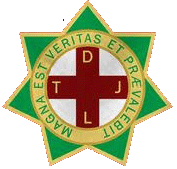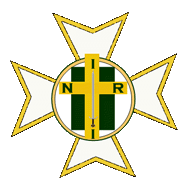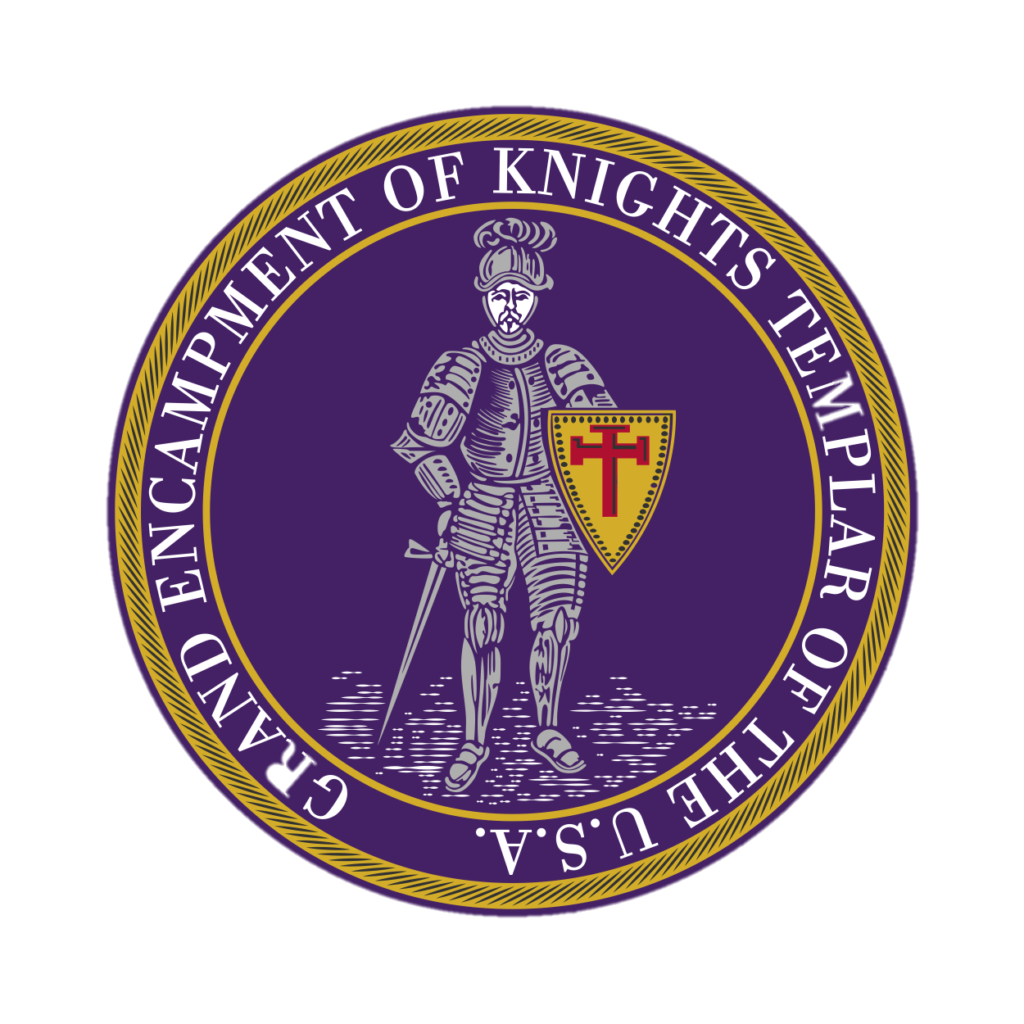Chivalric Orders
The Commandery confers Orders, not Degrees. The orders represent a new line of Masonic thought and experience, in that they no longer refer to Ancient Craft Masonry, but to ideals and practices of ancient chivalry and Christianity. The first Commandery order, The Order of The Red Cross, presents the story of the Jewish Prince, Zerubbabel, and his efforts to secure permission of the Persian King Darius to rebuild King Soloman’s Temple. The next order, Knight of Malta, is a departure from Masonry based on the Old Testament and is the first Christian Order. Here, the candidate represents a knightly warrior of the Crusades and is preparing for a trip to the Holy Land. The last order is that of Order of The Temple or Knight Templar, the crowning glory of York Rite Masonry. Again, in this totally Christian Order, the candidate represents a knightly warrior who desires to unite with a Commandery of Knights Templar during the era of the Crusades. After several trials to test his faith, courage, and humility, he is rewarded by achieving his desire. Let us look at these orders in more detail.

This order consists of two sections:
(1) Zerubbabel’s (the candidate) admission to the Jewish Council at Jerusalem, in which he is granted permission and authority to travel to Babylon to obtain leave from King Darius to stop the enemies of the Jews from hindering their progress in building the Temple, as well as to recover the Holy Vessels of the Temple which were taken as booty to Babyloktrcn by King Nebuchadnezzar when he destroyed the First Temple. Zerubbabel is also given a sword to defend himself; a sash to remind him of his cause; and a password to get him by Jewish sentinels on his journey. Unfortunately, he is captured and made prisoner upon reaching the domains of King Darius.
(2) At the court of Darius, Zerubbabel renews his earlier friendship with the King, and is granted a position in the royal household. He then participates in a friendly contest with other nobles regarding the question: ” Which is greater? The strength of wine? The power of the King? Or the influence of woman?” Zerubbabel chooses the latter, and adds an additional element: The force of truth. After rendering his rhetorical declamation on women and concluding in favor of truth above all, Zerubbabel is declared the winner of the contest and is granted his desires by the King. To perpetuate the event, Darius creates a new Order, the Order of The Red Cross, and after an obligation, makes Zerubbabel its first member. Next, Zerubbabel receives the signs, grips, and words, as well as a historical lecture. The body is called a Council. The cornerstone of this Order is the all-important attribute of truth, and the importance of keeping one’s word. It foreshadows the words of Jesus: “I am the way, the truth, and the life.”

This Order consists of: The Order of St. Paul, or the Mediterranean Pass, which is somewhat preparatory to the order, and the Order of Malta itself. The Order of Malta must be conferred in either full or short form. The full form is quite intricate and very beautiful but is not conferred ktmaby all Commanderies. The short form is but a summary of the lessons taught in the full form, and this is what is described here. The Order of St. Paul is based on the story of Paul’s shipwreck on the island of Melita (Malta). The candidate represents a knight who is about to depart for the Crusades in the Holy Land. He receives sustenance, both spiritual and physical, to prepare him for his burdensome journey. The Order of Malta is a suitable preparation for the Order of the Temple, in that it provides the candidate with New Testament instruction, particularly in the eight Beatitudes. The symbol of the Order is the Maltese Cross, symbolic of the Beatitudes and the eight languages which once were spoken by its members. The candidate is made a Knight of Malta and is instructed in the words and signs specific to the Order. The body is called a Priory.

This Order begins with the candidate, a Knight of Malta, who, after much soul-searching reflection finds answers to certain questions and seeks to unite with a Commandery of Knights Templar. To test his faith, he is directed kt03to perform a number of years of pilgrimage. Being full of zeal and hoping to accomplish more useful deeds, he requests and is granted remission. He assumes a most solemn obligation, and then is obligated to a certain number of years of knightly warfare, as a test of his courage and constancy. Having satisfactorily performed these, he is admitted to the Asylum of the Knights Templar, where he is a participant in certain memorial exercises. Accompanying these exercises is a reading of New Testament scripture and an inspirational slide presentation. He is then required to perform a time of penance in token of his humility. Following this, he seals his membership in the Order in the most solemn, impressive and binding manner, and is duly dubbed a member of the Valiant and Magnanimous Order of the Temple. Again, he receives certain signs, grips, and words, as well as an explanation of the important accoutrements of Templary, the Grand Standard, Baldric, Beauceant, Sword, and Spur. The body is called a Commandery. The relevance of this sublime Order to the Christian Mason can scarcely be overstressed. It provides a vivid connection between the Craft and Christianity. Especially relevant and meaningful is the address given by the Prelate during the course of the ceremonies.

